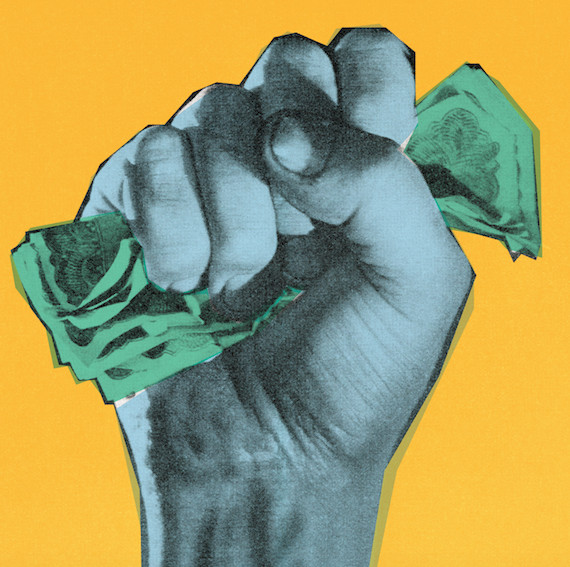
It’s time for customers to put down a deposit on their booking, argues Edmund Weil
My last column ended on a surge of optimism, as the furlough scheme lifted thousands of hospitality businesses and millions of employees out of the slough of Covid despond. Sadly, much of that optimism has ebbed away: first with the exclusion of tronc payments from the furlough scheme, plunging many hospitality workers into unsustainable income shortfalls; then with the intransigence of many landlords on rent payments during forced closure, compounded by a less robust return to business than many of us would have hoped. After the grand reopening, wet-led venues watched forlornly from the sidelines as the restaurant industry was lifted by the 5% VAT rate on food and the successful Eat Out to Help Out initiative.
For bars, the furlough scheme was as good as it got, and the last thing we needed after all that was to be let down by our guests too. Yet this is what appears to be happening across all strata of the bar industry in the form of no-shows. This was a problem for our industry at the best of times. Most bars take bookings in one form or another, and for busier venues they often represent the majority of covers and income. I well remember running the host station at Nightjar back in the day, desperately trying to reach a four-top booked at peak time. No sign of the booking, no answer on the phone. A small group of walk-ins who would fill the empty table waiting upstairs. Twenty minutes pass. The walk-ins head off to another venue where they’re sure to be accommodated. The booking never shows. Over £100 of revenue melts into the night.
It’s a conundrum that will be familiar to many bar owners and managers, and one that in present conditions represents more than just an annoyance. The prevalence of the #nomorenoshows hashtag demonstrates how harmful no-shows are to an industry desperate to get back on its feet. Sadly, reaching outside of the industry bubble on social media is easier said than done. Although we might achieve cut-through with a small proportion of prospective guests, there will be many it does not reach, and sadly still more who simply won’t care. Educating guests about the harm no-shows do to venues may be a worthwhile project in the long term, but it’s not going to help us out of this crisis.
There are more immediate solutions to this conundrum. The Aviary – the cocktail bar attached to Chicago restaurant Alinea – famously only pre-sells tickets for its bookings, varying from a $165 ‘chef’s table’ food and cocktail pairing to a simple $20 reservation deposit. Likewise, in the UK, immersive venues such as Lollipop’s ABQ (the Breaking Bad-themed, make-your-own-molecular-cocktail bar) and The Bletchley (the WWII experiential codebreaking cocktail bar) pre-sell their “packaged experience” – which includes three cocktails and a number of activities – online. According to Lollipop chief executive Sebastian Lyall: “It reduces bill shock to zero, and people are generally more comfortable paying more online than onsite. A group of four with three drinks each would be £130 plus service. That bill is big. But paying £35 a head online for an experience – that is good value.”
Element of prepayment
Of course, not all bars offer a level of ‘experience’ to justify upfront ticket sales like this. However, an element of prepayment or at least financial jeopardy can go a long way toward eliminating no-shows. A much simpler and milder version is a £10 per head card pre-authorisation, which is only deployed if the guest no-shows without notice. This has the potential to massively reduce the problem of no-shows and, should a guest lack the civility to inform you they are not coming, gives the venue a consolation for the lost sales.
It seems like a no-brainer but, as with so many things in this game, it’s never that simple. Industry discussions around no-shows have revealed a real stigma attached to taking such deposits or guarantees, as if doing so somehow diminishes the hospitality of the venue. I have to admit that such attitudes amaze me. Like it or not, having guests in your bar involves a transaction – so why the pearl-clutching at front-loading a small portion of this to ensure your guests do you the courtesy of showing up? Other owners and managers express fear that asking for card details will deter potential bookings. I would retort by asking whether a guest who is unwilling to put down a tenner in good faith is really the sort you want in your venue?
This is a matter in which I believe a concerted change of attitude across the industry would be of enormous benefit. Consumers already accept the need to put money down to secure a place at the theatre, the cinema, live music and any number of other experiences. If we have faith in what we have to offer there is no reason this should not become the norm for bars and restaurants. Our industry remains in the midst of an existential crisis, and in the difficult months to come, the public is going to have to decide on how much they value the world-class bar scene this nation has to offer. Part of that should be a willingness to make a small financial commitment to secure their bookings. We’re worth it.


